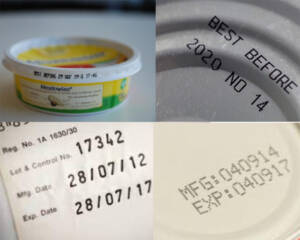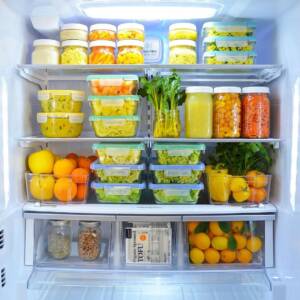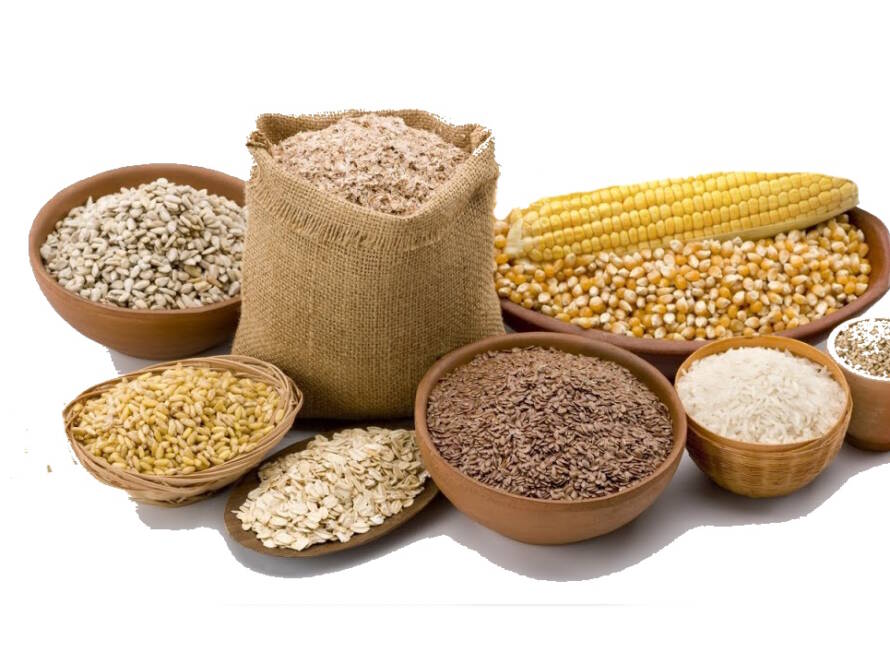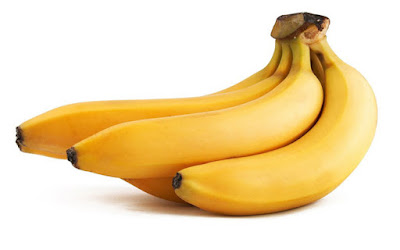Food waste refers to the discarding or wastage of edible food. It includes both the intentional disposal of food and the unintentional spoilage or loss due to factors such as poor storage, over-purchasing, or neglecting leftovers. Food waste is not only unacceptable from an ethical and moral point of view but also poses a major environmental problem The huge amount of food that ends up in a landfill releases greenhouse gasses that contribute to climate change Reducing food waste is a shared responsibility and an important step in sustainable living.
To reduce food waste, here are some effective strategies:
Plan meals and make shopping lists: Plan your meals in advance and create a shopping list based on the ingredients you need.
Proper storage: Storing food in an appropriate manner can extend its shelf life and reduce food waste Understand the optimal storage conditions for different types of food, such as keeping perishables refrigerated, using airtight containers, and freezing when appropriate. Store greens with a paper towel in a plastic container in the crisper drawer, tomatoes and bananas on the counter, potatoes and onions in a cool, dark place and fresh herbs in a glass of water.
First in, first out (FIFO): Practice the FIFO method when storing food. Place newer items at the back of the fridge or pantry and use older items first to prevent them from expiring.
Understanding expiration date labels on food. “Best Before” dates pertain to the quality, while “use by”/”expiration date” pertain to food safety. “Best Before” means, you can eat food past this date but it might not be at its best taste, quality and freshness. “Use by” implies that you’ve got until the end of this date to use or freeze the food before it becomes too risky to eat.

Clean The Refrigerator: When your fridge is overly cluttered, it’s easy to overlook leftovers and food that isn’t being used. It’s also easier to forget that you have something already and end up buying it again when you didn’t actually need it. Cleaning out the refrigerator on a regular basis will reduce clutter, which makes planning and organizing easier and more efficient.
Portion control: Serve and consume appropriate portions to avoid overeating and leaving excess food on plates. You can always go back for seconds if needed.
Save and utilize leftovers: Get savvy on how to reuse leftover food items and scraps instead of immediately tossing them in the trash. Transform leftovers into new meals or snacks. Get creative and repurpose them into sandwiches, salads, stir-fries, or soups. Use the below suggestions for utilizing food scraps.
- Vegetable and fruit scraps: Save vegetable peels, trimmings, and fruit scraps in a container in your freezer. Once you have a sufficient amount, use them to make homemade vegetable broth or fruit-infused water.
- Citrus peels: These peels can be candied, used as a drink garnish, or added to infused water. Alternatively, zest your peels before using the citrus fruit and place the zest in the freezer to be used later in baked goods or sprinkled on yogurt or oats.
- Chop and freeze leftover herbs: Herbs are a flavorful addition to any meal. If you cannot use up all the herbs before they go bad, chop them up and store them in the freezer. You can easily pull out a few handfuls to add an extra pop of color and flavor to future meals.
- Stock and broth: Save meat bones, vegetable scraps, and herb stems to make homemade stock or broth. Simmer them with water and spices for a flavorful base for soups, stews, and sauces.
- Smoothies and juices: Overripe fruits and vegetables can be blended into delicious smoothies or juices. You can also freeze them in portions for future use.
- Pickling: Preserve leftover vegetables like cucumbers, carrots, or radishes by pickling them. This extends their shelf life and adds tangy flavors to your meals.
- Bread crumbs: Stale bread can be transformed into croutons or breadcrumbs by toasting or grinding them. Use these crumbs as a binder in cutlets, or as a coating for snacks prior to frying.
- Leftover meal remix: Get creative with using leftover cooked food. For example, use leftover roasted vegetables in salads, soups, or as a filling for rolls. Leftover cooked rice can be transformed into curd rice, lemon rice or cutlets.
- Freeze for later: If you have excess food that you won’t consume before it spoils, freeze it in portions for later use. Soups, stews, sauces, and even certain fruits can be frozen and enjoyed at a later time.
How to freeze food safely to extend its shelf life
- Don’t put hot food in the freezer: Allow cooked food to cool completely prior to freezing. Placing warm food in the freezer can cause other foods to thaw.
- Use appropriate packaging and seal food tightly: Use foil, plastic wrap and plastic freezer bags. Try to remove as much air when wrapping. Or if you’re using food storage containers, make sure you’ve left enough space in the container for liquid to expand as it freezes.
- Freeze foods in portion sizes you’ll need for future meals.

Infuse vinegar with citrus scraps for homemade cleaner: Oranges, lemons, limes and other citrus fruits make wonderful homemade cleaners. Drop a few citrus peels into a jar of vinegar, shake it up and let it infuse for a week or two. Strain the liquid, compost the peels and you have your own cleaner that can tackle everything from pots and pans to the kitchen floor.
Save dried, crushed eggshells for plant fertilizer: Next time you crack open an egg, rinse the shell and place it in a bowl on the counter to dry for a few hours. Once the shell is dry, crush it up and store it in a plastic bag or glass jar. When the time comes to plant seedlings, drop several pinches of the eggshells in the hole before adding your plant. Eggshells can offer extra potassium, phosphorus and other essential nutrients to plants as they grow.
Pamper Yourself: If you want to save money while avoiding potentially harmful chemicals found in some skincare products, try preparing a scrub or mask at home. Combine overripe avocado with a bit of honey for a luxurious combination that can be used on the face or hair. Mixing used coffee grounds with a bit of sugar and olive oil makes for an invigorating body scrub. You can also apply cool used tea bags or excess cucumber slices to your eyes to reduce puffiness.

Donate to food banks or shelters: If you have surplus food that is safe for consumption but won’t be used, consider donating it to local food banks or shelters that accept donations. Many organizations collect excess food and distribute it to those in need.
Composting: Establish a composting system for food scraps that are not suitable for consumption or donation. Composting allows organic waste to break down naturally and turns it into nutrient-rich soil that can be used for gardening.
By incorporating these practices into your routine, you can significantly decrease household food waste and make a positive impact on the environment.



